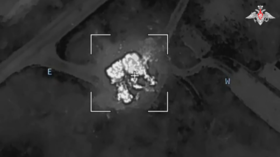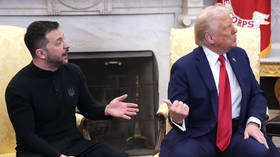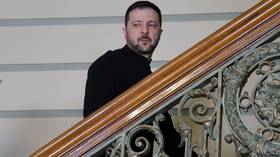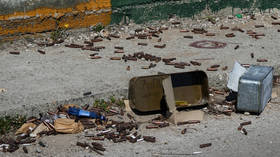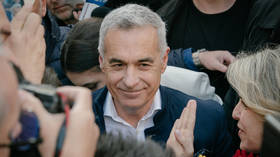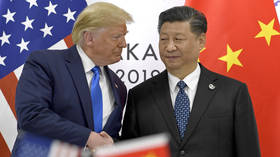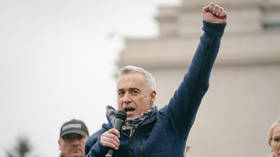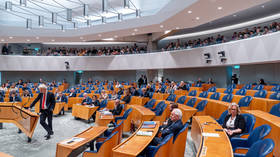Swiss govt accused of undermining neutrality
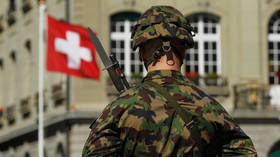
The Swiss People’s Party (SVP), a major political force and the largest group in the country’s Federal Assembly, has hit out at the government in Bern over its decision to join EU military initiatives. The move will seriously undermine the nation’s traditional neutrality, the right-wing party has argued.
In a statement on Wednesday, the SVP said it “firmly opposes” Switzerland’s participation in the EU’s Permanent Structured Cooperation (PESCO) military pact. By signing up to the framework, the Swiss Federal Council is “abandoning our country’s neutrality and sovereignty” while “putting the security of the Swiss population at risk through gross negligence,” the party said.
The SVP also accused Defense Minister Viola Amherd and the entire cabinet of using a “salami tactic” in its “insidious rapprochement with both the EU and NATO.”
Switzerland assumed military neutrality in 1815. The obligations enshrined in the country’s constitution prohibit the shipment of weapons to war zones from or through Swiss territory, as well as providing mercenary troops to countries involved in armed conflicts.
A poll conducted by the Center for Security Studies at ETH Zurich, a research university, indicated in March that some 91% of Swiss citizens believe the country should remain neutral.
Despite the government’s attempts to present military cooperation with the EU as merely technical, participation in PESCO initiatives would inevitably require Switzerland to align its foreign and security policy objectives with those of the bloc, the SVP claimed.
The party also argued that Swiss interests do not coincide with those of the EU in all areas, citing the bloc’s expansionist tendencies, especially regarding Ukraine, Georgia, and Moldova. As a result, the issue of PESCO participation must be put to a vote in parliament, the SVP insisted.
In a separate statement on Wednesday, the Swiss central government revealed that Bern would join the ‘Military Mobility’ and ‘Cyber Ranges Federation’ projects under the PESCO umbrella.
“This strengthens Switzerland’s national defense capabilities” while being “in conformity with Switzerland’s neutrality obligations,” the Federal Council claimed.
According to the statement, the Swiss army will work with 25 EU members on facilitating the cross-border transfer of military hardware across the continent as part of the ‘Military Mobility’ project.
The ‘Cyber Ranges’ initiative, meanwhile, offers access to a simulated cyber-environment, where experts can receive realistic training in repelling cyberattacks.
Despite not being a member of the EU or NATO, Switzerland has joined the West’s sanctions against Russia over the Ukraine conflict.
Commenting in April, Russian Foreign Minister Sergey Lavrov said that Switzerland “has turned from neutral to openly hostile.”



